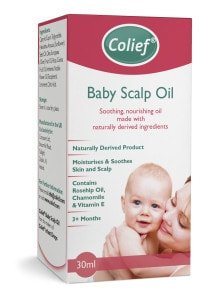
Earlier this month I was lucky enough to be invited to attend the Colief playdate in London along with Mandi from Hex Mum Blog and a handful of other parent bloggers.
Being pregnant with baby number three and after an almost five-year age gap between Tigger and Piglet I am feeling very much like a first time mum again. My brain has locked away he memories of the newborn days and I can’t remember what it is like to care for a small baby. I’m trying to refresh my memory on all things baby related and attending the Colief playdate was the perfect opportunity.
Let me tell you about the three products I was introduced to at the event…


Constant crying and seeing your baby distressed can be heartbreaking and isolating for any parent. With no clear answers, and countless sleepless nights, it can sometimes feel like you have nowhere to turn to for help.
On the market since 1999, scientifically proven Colief Infant Drops contain lactase, a naturally occurring enzyme which helps relieve the suffering of colic caused by temporary lactose intolerance – common in many babies as their digestive systems develop. Adding a few drops to a baby’s milk or mum’s breast milk helps to break down the lactose which some babies can’t digest, easing their pain and reducing their tears.
The only lactase enzyme with clinical studies supporting its efficacy, Colief Infant Drops is the most commonly prescribed treatment for colicky symptoms and is widely recommended by health visitors.
Topping up your colicky baby’s lactase levels is a sensible first step to tackling their symptoms naturally. But we know that all babies are different and not every case of colic is caused by temporary lactose intolerance. You could try a one-week trial of Colief Infant Drops to help diagnose whether sensitivity to milk-sugar lactose could be the problem.
I don’t remember Roo or Tigger having colic and certainly not to the point of constant crying etc over the twilight hours. I can see how little tummies could find it difficult to break down the lactose in either mum’s or formula milk. With results being seen in 3 days as to whether this is the cause of your baby’s upset it is one to keep in the cupboard just in case.
 Colief® Baby Scalp Oil
Colief® Baby Scalp Oil
Babies are known for their super-soft skin, but they can often develop dry or flaky scalps, particularly in their first year. While cradle cap rarely troubles your baby and may eventually clear up on its own, most parents look for gentle solutions to treat it.
Developed by Colief, experts in baby health, Colief Baby Scalp Oil helps soften and clear the scalp of flakes or scaly skin. Made with nourishing rosehip oil, healing chamomile and Vitamin E to protect, Colief Baby Scalp Oil gently moisturises and soothes your baby’s skin and scalp – naturally relieving the symptoms of cradle cap and increasing you and your baby’s feelings of contentment.
The Colief Baby Scalp Oil was silky smooth and didn’t leave the skin feeling greasy especially compared to olive oil that I know I was recommended to use when Roo was a baby (plus is smells better than olive oil too).
 Colief® Vitamin D Drops
Colief® Vitamin D Drops
Government advice is that certain groups, including pregnant and breastfeeding women and children from six months to five years of age, should take vitamin D supplements. This is because most people get little vitamin D in their diet and the UK climate means that for much of the year only low levels of vitamin D can be obtained from the sun.
Developed by Colief, experts in baby health, Colief Vitamin D3 Drops is a natural supplement giving you the reassurance that both you and your baby are getting the right amount of vitamin D, vital for developing strong teeth and bones and a healthy immune system. Topping up your baby’s vitamin D levels also protects them from the more serious effects of deficiency, such as the childhood bone disorder rickets.
Offered in the preferred form of vitamin D3 (cholecalciferol), in a pure coconut oil base with no added ingredients, each 20ml bottle of Colief Vitamin D3 Drops provides a five-month supply for infants and children and a four-month supply for pregnant or breastfeeding women. These vitamin D3 Drops can be mixed with food or a drink, or given/taken directly by mouth.
My midwife or GP haven’t mentioned to me that I should be adding Vitamin D3 drops to my diet whilst I am pregnant and also to Tigger’s diet too to aid with his immune system. This is something I will be implementing as soon as possible.
How much do you know about the Colief range?






















No Comments